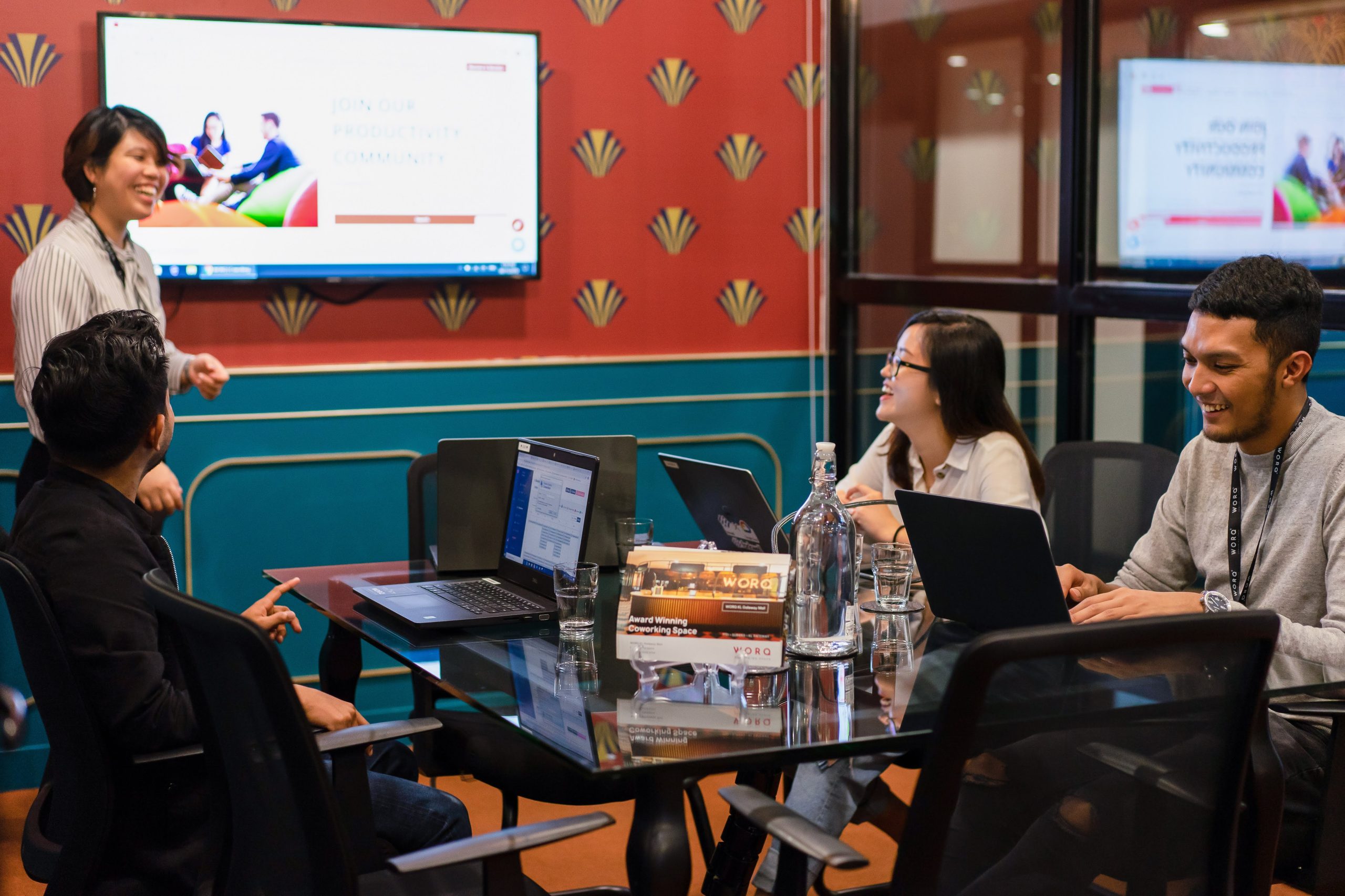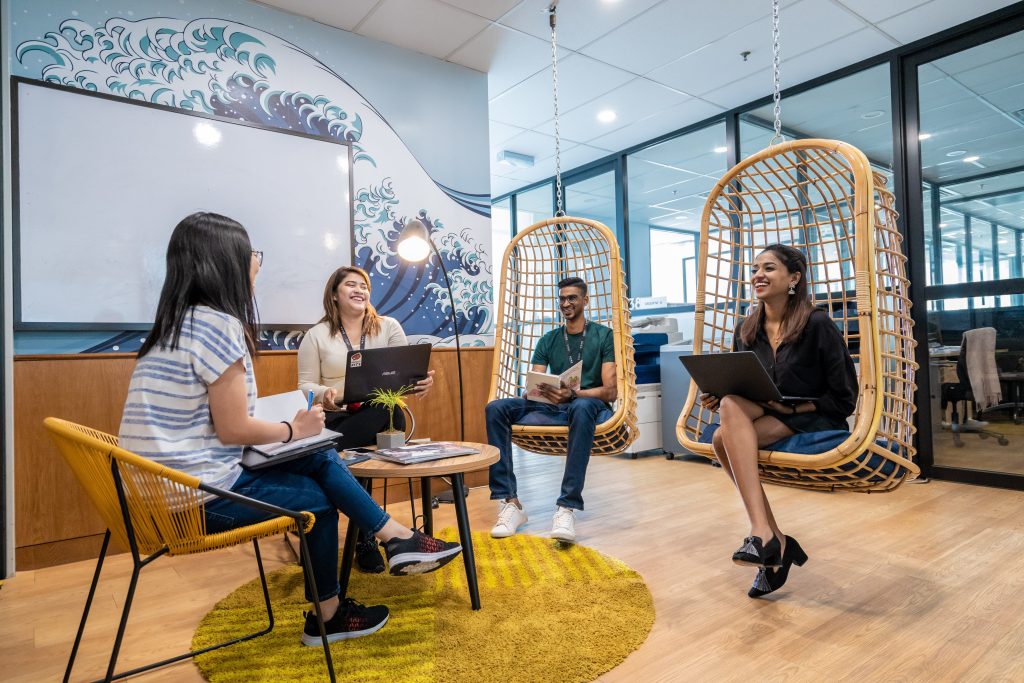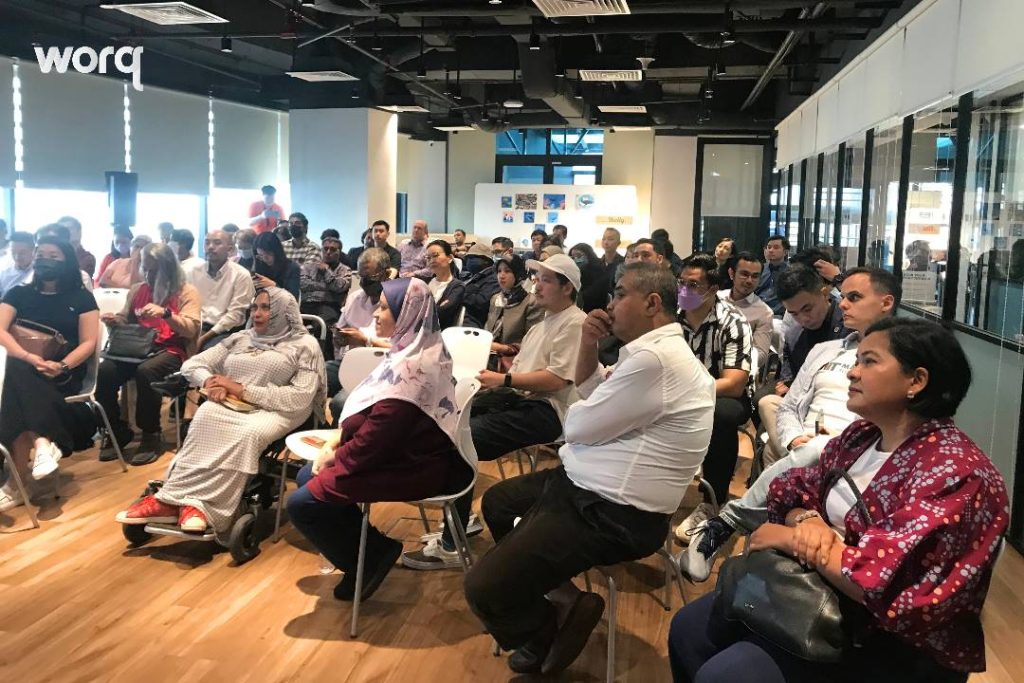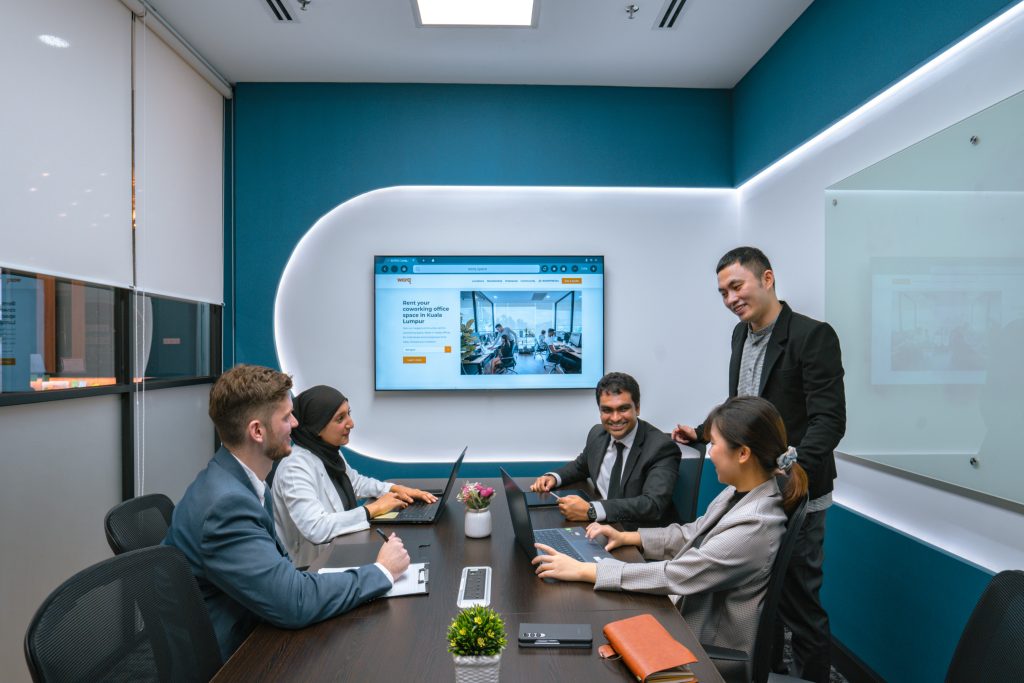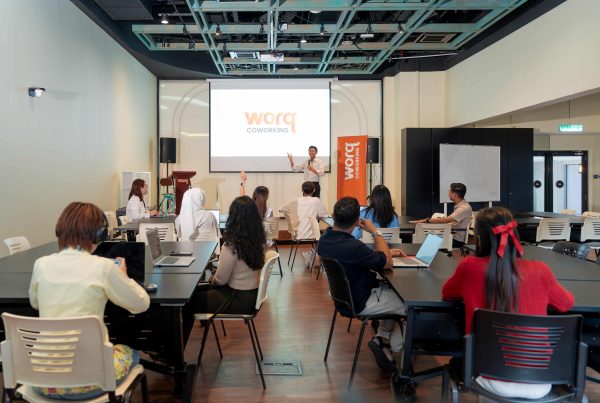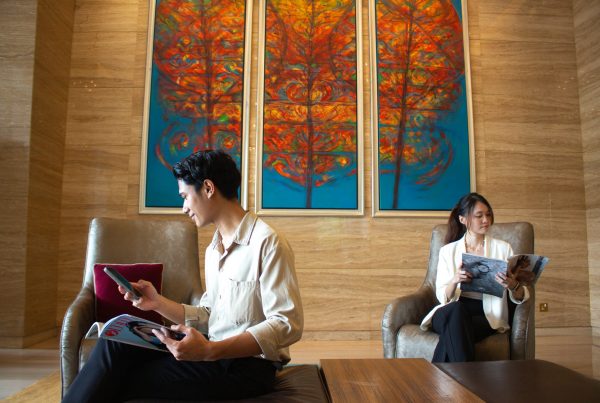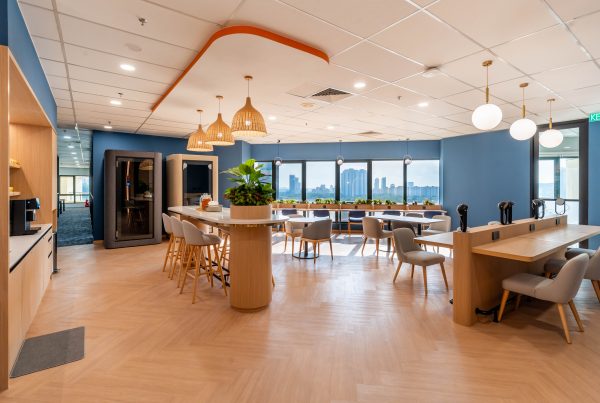In the wake of the COVID-19 pandemic, the working world as we know it has undergone a significant transformation. Coworking spaces in Malaysia have become a global network, offering immediate solutions for multinational companies looking to establish or expand their presence. With built-in networking opportunities and a collaborative environment, these spaces foster innovation and provide access to diverse resources.
In this blog post, we will delve into the reasons why more multinational companies find coworking spaces as their office rental solution so appealing in the post-COVID era.
Agility and Flexibility
In a rapidly changing business landscape, multinational companies need the flexibility to adapt to market shifts quickly. Coworking spaces provide the agility these companies require, allowing them to scale their operations up or down as needed. With our recent opening of WORQ Bangsar, WORQ spaces provide maximum agility for businesses to accommodate their workforce in all stages from inception, rapid scaling, pivoting and adjusting by providing the right infrastructure and support for early-stage businesses as well as MNCs.
In one of our previous blog posts, we highlighted that traditional 9 to 5 working hours are less important in coworking spaces than they are in a corporate office. Many companies that provide shared workspaces have flexible working hours, allowing employees to come in and do their tasks whenever it is most convenient for them.

Cost Efficiency
Cost efficiency is a crucial factor that can make or break the success of multinational companies. Traditional options can be burdensome, with exorbitant upfront costs and lengthy commitments. Traditional office rental rates are based on the property’s size and payment frequency. Generally, they cost from RM0.79 to RM10.50 per square foot per month.
Instead of tying up valuable resources in real estate and office setup, coworking spaces offer a more budget-friendly approach. According to a post by Coworker.com, coworking can be 60–70% more cost-effective than the traditional office model for businesses with up to 30 employees.
In an article by The Malaysian Reserve, Cenergi SEA Bhd Head of Corporate Affairs Azana Fariza said that after a thorough comparison of costs between a traditional office space and a coworking one at the end of Cenergi’s previous office tenancy, they found more appeal in the latter as it provided the convenience of moving into a fully furnished space.
Global Network and Collaboration Opportunities
As coworking spaces become a global phenomenon, they now thrive in key cities worldwide, including Malaysia. For multinational companies venturing into new markets, coworking spaces offer an enticing solution as they provide an immediate avenue for growth, offering built-in networking opportunities to connect with like-minded professionals, potential partners, and local talents. One of WORQ’s core objectives is to establish a community where entrepreneurs can come together, collaborate, and navigate the often challenging and isolating road of entrepreneurship.
With that in mind, it’s important to note that Malaysia ranked 27th in the world’s most competitive economies, according to the International Institute for Management Development (IMD) World Competitiveness Ranking 2023.
According to the report covered by News Straits Times, Malaysia’s improvement in the rankings was mainly backed by its economic recovery, investment growth, and bright spots in exchange rate stability, and the employment market, making it a hotspot for global networking and collaboration opportunities that is amplified with coworking’s exponential growth in the industry.
Increased Productivity
In recent years, coworking spaces have gained immense popularity in Malaysia’s bustling cities, revolutionizing the way people work and interact professionally. These shared workspaces have proven to be highly effective in increasing productivity among professionals and entrepreneurs.
With coworking as a great alternative to introducing hybrid working for various companies, a recent study by Cisco showed that 86% of Malaysian employees say the ability to work from anywhere has made them happier. In addition, Hybrid work has improved total well-being, with 82% saying they saved money in the past year and 72% have gotten physically fitter.

Health and Safety Measures
In the wake of the pandemic, companies have adapted their operations, with many choosing to downsize office spaces to comply with safety measures. As social distancing guidelines restrict the number of individuals allowed in enclosed spaces, the demand for alternative working environments has surged. WORQ CEO and co-founder Stephanie Ping, recognized this need for adaptable spaces during the onset of COVID in 2020, emphasizing the importance of creating a safe and productive working environment for teams.
“They want to be spread out because they do not want concentration risks. At the same time they do not want to get offices anymore because it is much easier to have flexibility in terms of time when they have to commit to a lease”, she said to The Malaysian Reserve.

Employee Well-being and Work-Life Balance
The pandemic has highlighted the importance of employee well-being and work-life balance. Coworking spaces often feature wellness amenities, such as fitness centers, meditation rooms, and communal areas that promote relaxation and social interaction. By providing a vibrant and inspiring work environment, coworking spaces contribute to employee satisfaction, productivity, and overall well-being.
In a blog post by A Job Thing, Paramount Corporation Bhd Deputy Group CEO and ED Benjamin Teo emphasized the importance of changing how offices work by integrating a bit of home element to create a healthy balance between comfort and productivity. For instance, employees can work in the office lounge for a different workstation view, a nap area to revitalize the mind, and quiet phone booths for private conversations.
Access to Talent
Co-working spaces in Malaysia draw a diverse community of professionals, encompassing freelancers, entrepreneurs, and industry specialists. Multinational companies can leverage this vibrant talent pool by implementing hybrid work through coworking spaces, uncovering skilled individuals who can make valuable contributions to their projects or provide specialized services.
The emerging trend of recognising coworking environments as hubs for highly skilled individuals is already noticeable within the industry. In an article by Forbes, it’s mentioned that 60% of SME CEOs in the United States offer remote work options to attract and retain top talent. Hybrid work through coworking can attract top talent and help keep the ones you already have.
In the post-COVID era, multinational companies are reevaluating their office rental options. Coworking spaces have emerged as a favoured choice, offering flexibility, cost efficiency, and access to global networks. Explore the benefits of coworking spaces for multinational companies in the new normal by booking a tour with us here!

